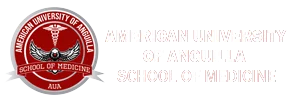

Blogs
3 Types of Students Who Should Consider a Joint M.D. Degree
Prospective med students who want to work in medical law should
consider a dual M.D.-J.D. program.
Students who want to open their own medical practice should consider a dual
MBA-M.D.
If you are in the process of applying to Caribbean medical school, you may have
received information from prospective programs about the possibility of applying
to a dual-degree or joint M.D. track.
Dual-degree programs typically combine your pursuit of an M.D. or D.O. with
another master's or doctorate degree, such as an MBA, Master of Education,
Master of Health Administration, Master of Public Health, J.D. or Ph.D. Some
students pursue dual-degree programs if their interests lie outside of clinical
medicine, while others might gravitate toward a joint M.D. if they're interested in
a particular niche of medicine where skills from both degrees are heavily used.
1. Students who want to start their own medical practice upon completing medical training
The standard of medical practice once saw physicians manning
their own individual offices, but the current trend involves multiple doctors
working in the same practice, often under the direction of an overarching health
care system. With this change in structure, the business of medical delivery has
become more complex, and insurance reimbursement remains fraught with
complications that often can best be untangled by an individual trained in specific
business practices.
Students who envision themselves directing or founding a medical practice with
physicians, physician assistants, nurse practitioners, nurses, phlebotomists, billing
personnel and office assistants may find that a dual MBA-M.D. degree suits them
perfectly – it will provide them with the management tools necessary to direct
the business side of a complex medical practice.
2. Students who want to work in medical law.
Medicine has many intersections
with law, including the development of health care policy. Our health care climate
has undergone significant change in recent years with the introduction of the
Patient Protection and Affordable Care Act, and it promises to continue changing
as the needs of our country's population shift.
Prospective medical students who see themselves as part of this change may be
interested in an M.D.-J.D. or M.D.-M.P.H. These dual-degree programs cultivate
legal knowledge and an understanding of how legal policy develops, which may
help these students effectively develop health care policy or otherwise play a role
in the medical law field.
3. Student who want to specialize in medical education.
Like health care law and
medical practices, medical education has undergone a shift in recent years, with
many Caribbean medical schools now combining traditional lecture and lab
practices with active learning in small groups, case studies, flipped classrooms and
the like.
Students who are interested in becoming medical educators or who would like to
work in community education may be interested in a dual M.D.-M.Ed. degree,
which combines medical training with an understanding of effective teaching
practices, individual lesson plans and how different types of students learn. This
joint concentration may best serve students who imagine themselves working as
Caribbean medical school instructors or in positions that educate the public on
issues like flu prevention.
